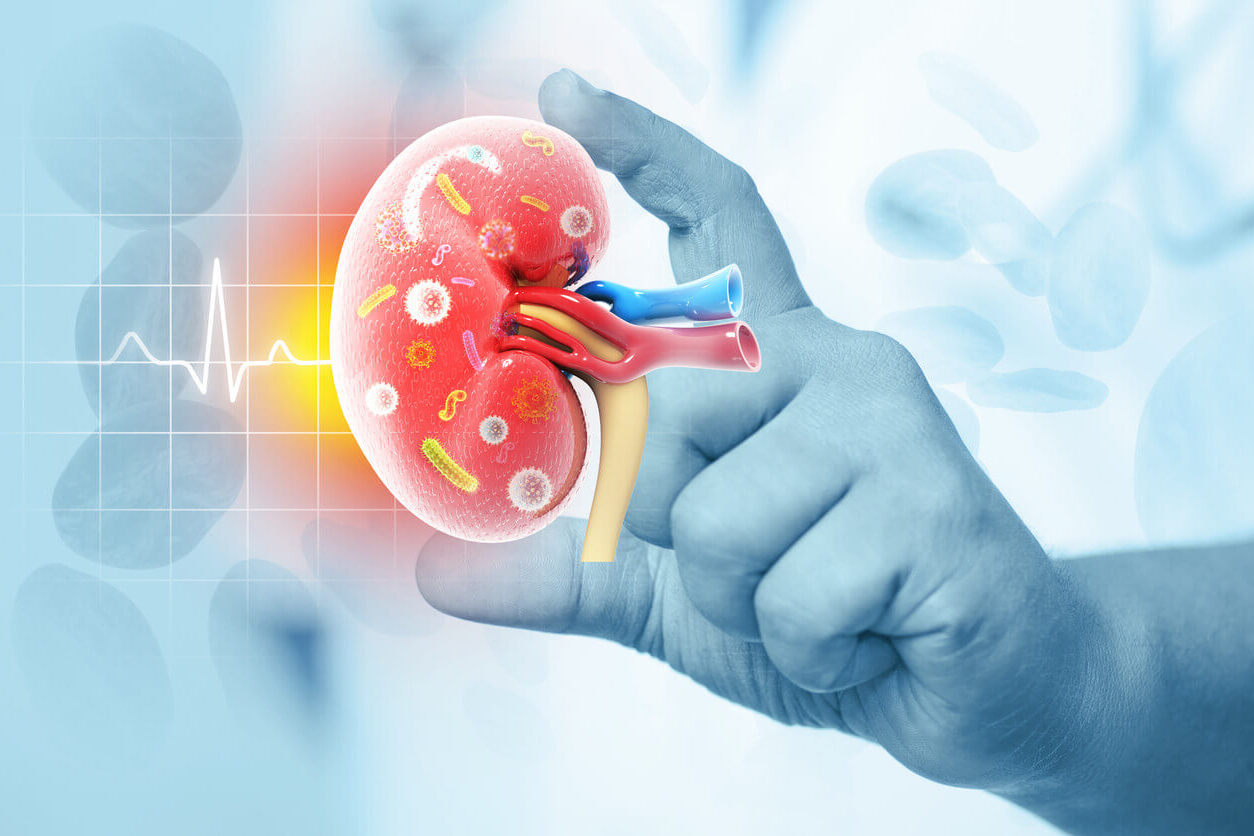
What is Glomerulonephritis? Glomerulonephritis, often called GN, is a kidney condition where the tiny filters in your kidneys, known as glomeruli, become inflamed. Why does this happen? It can result from infections, autoimmune diseases, or other health issues. How does it affect you? This inflammation can lead to kidney damage, affecting their ability to filter waste and excess fluids from your blood. What are the symptoms? Common signs include blood in the urine, swelling in various body parts, and high blood pressure. Is it treatable? Yes, treatments range from medications to lifestyle changes, depending on the cause and severity. Why is it important to know? Understanding GN can help you recognize symptoms early and seek timely medical help, potentially preventing severe kidney damage.
Key Takeaways:
- Glomerulonephritis is a kidney disease that can be acute or chronic, with symptoms like blood in urine and swelling. It's important to get early diagnosis and treatment to prevent kidney failure.
- Lifestyle changes, regular medical care, and support are crucial for managing glomerulonephritis. This includes a healthy diet, exercise, stress management, and staying hydrated while avoiding alcohol and tobacco.
What is Glomerulonephritis?
Glomerulonephritis is a type of kidney disease that affects the glomeruli, the tiny filters in the kidneys. These filters remove waste and excess fluids from the blood. When they become inflamed, it can lead to serious health problems.
- Glomerulonephritis can be acute or chronic.
- Acute glomerulonephritis often follows infections like strep throat.
- Chronic glomerulonephritis develops slowly over several years.
- Symptoms include blood in urine, foamy urine, and swelling in the face, hands, feet, and abdomen.
- High blood pressure is a common symptom.
- It can lead to kidney failure if untreated.
- Autoimmune diseases like lupus can cause glomerulonephritis.
- Diabetes is a significant risk factor.
- Certain genetic conditions can predispose individuals to this disease.
- It can affect people of all ages but is more common in children and young adults.
Causes and Risk Factors
Understanding what causes glomerulonephritis and the risk factors can help in early detection and management.
- Bacterial infections, especially streptococcal infections, can trigger the disease.
- Viral infections like hepatitis B and C are also culprits.
- Parasitic infections such as malaria can cause glomerulonephritis.
- Immune system diseases like Goodpasture syndrome are linked to it.
- Vasculitis, inflammation of blood vessels, can lead to glomerulonephritis.
- Certain medications, including NSAIDs, can increase the risk.
- A family history of kidney disease raises the likelihood.
- Exposure to toxins and chemicals can be a contributing factor.
- Chronic diseases like hypertension can exacerbate the condition.
- Obesity is another risk factor.
Diagnosis and Tests
Diagnosing glomerulonephritis involves several tests to confirm the condition and understand its severity.
- Urinalysis is the first step in diagnosis.
- Blood tests measure kidney function and check for antibodies.
- Imaging tests like ultrasounds provide a view of the kidneys.
- A kidney biopsy may be necessary for a definitive diagnosis.
- Blood pressure monitoring is crucial.
- Glomerular filtration rate (GFR) tests assess kidney function.
- Serum creatinine levels help determine kidney health.
- Complement levels in blood can indicate immune system activity.
- Antistreptolysin O (ASO) titers check for recent strep infections.
- C3 and C4 complement tests can identify immune-related causes.
Treatment Options
Treatment for glomerulonephritis varies depending on the cause and severity of the condition.
- Antibiotics treat infections that cause glomerulonephritis.
- Corticosteroids reduce inflammation.
- Immunosuppressive drugs help control the immune system.
- Blood pressure medications manage hypertension.
- Diuretics reduce swelling by removing excess fluid.
- Plasmapheresis removes harmful antibodies from the blood.
- Dietary changes, like reducing salt intake, are often recommended.
- Dialysis may be necessary for severe cases.
- Kidney transplant is an option for end-stage kidney disease.
- Regular monitoring and follow-up care are essential.
Living with Glomerulonephritis
Managing life with glomerulonephritis involves lifestyle changes and regular medical care.
- Maintaining a healthy diet is crucial.
- Regular exercise helps manage symptoms.
- Avoiding alcohol and tobacco can improve kidney health.
- Stress management techniques are beneficial.
- Regular check-ups with a nephrologist are necessary.
- Monitoring blood pressure at home is recommended.
- Staying hydrated is important but should be balanced with fluid restrictions.
- Joining a support group can provide emotional support.
- Educating oneself about the disease helps in managing it better.
- Adhering to prescribed medications is vital for controlling the condition.
Final Thoughts on Glomerulonephritis
Glomerulonephritis, a complex kidney condition, affects many people worldwide. Understanding its causes, symptoms, and treatments can help manage this disease better. Early detection is crucial for effective treatment and preventing complications. Regular check-ups, a healthy lifestyle, and staying informed about the latest medical advancements are key steps in managing glomerulonephritis.
Remember, knowledge is power. The more you know about this condition, the better equipped you'll be to handle it. If you or someone you know is affected, don't hesitate to seek medical advice. Support from healthcare professionals, family, and friends can make a significant difference.
Stay proactive about your health, and keep learning. With the right information and support, living with glomerulonephritis becomes more manageable. Stay informed, stay healthy, and take control of your well-being.
Frequently Asked Questions
Was this page helpful?
Our commitment to delivering trustworthy and engaging content is at the heart of what we do. Each fact on our site is contributed by real users like you, bringing a wealth of diverse insights and information. To ensure the highest standards of accuracy and reliability, our dedicated editors meticulously review each submission. This process guarantees that the facts we share are not only fascinating but also credible. Trust in our commitment to quality and authenticity as you explore and learn with us.
